Trump administration heads to Supreme Court to support ‘freedom’ to discriminate against gay customers
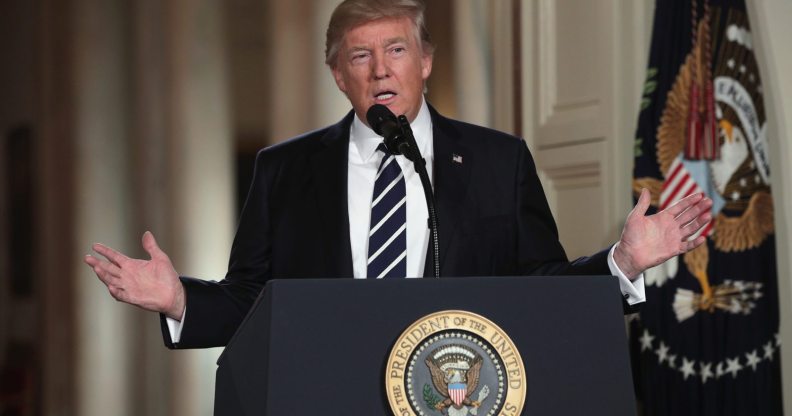
(Getty)
The Trump administration is seeking permission to deliver oral arguments at the Supreme Court in a case seeking to undermine LGBT discrimination protections.
In December the US Supreme Court is set to hear the case of a religious baker who is seeking to undermine state-level LGBT discrimination protections.
Jack Phillips of Colorado’s Masterpiece Cakeshop launched a legal challenge after being found in violation of state anti-discrimination laws for refusing to serve gay couple David Mullins and Charlie Craig.
The baker refused to make a cake for the couple after he found out they were celebrating their wedding
Mr Phillips earlier this year claimed that Jesus Christ would discriminate against gay people, and continues to insist his religion requires discrimination against gay people.
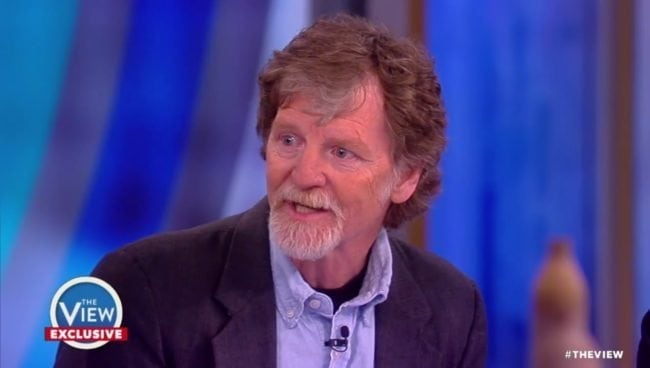
But as the Supreme Court gears up to hear the case, scheduled for December 5, the Trump administration has joined the baker’s cause.
Trump’s Justice Department yesterday filed a request to deliver oral arguments as part of the baker’s defence.
The administration argued that it has a “substantial interest” in the case to protect “free expression”.
The request seeks permission “to participate in oral argument in this case”, explaining: “The United States has filed a brief as amicus curiae supporting petitioners. Petitioners have agreed to cede ten minutes of argument time to the United States and therefore consent to this motion.
“The question presented is whether that application of Colorado law violates the First Amendment to the U.S. Constitution, as applied to the States under the Fourteenth Amendment.
“The United States has filed a brief as amicus curiae supporting petitioners, contending that, in the circumstances of this case, the First Amendment’s Free Speech Clause bars the application of Colorado’s public accommodations law to petitioners.”
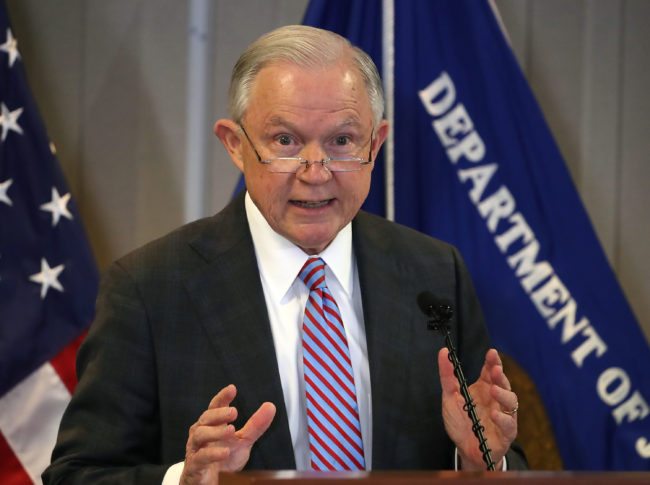
Trump’s Attorney General Jeff Sessions (Getty)
It continues: “As a general matter, the United States has a substantial interest in the preservation of federal constitutional rights of free expression.
“In addition, the United States has a particular interest in the scope of such rights in the context of the Colorado statute here, which shares certain features with federal public accommodations laws, including Title II of the Civil Rights Act of 1964 and Title III of the Americans with Disabilities Act of 1990.
“The United States is thus well positioned to address the reconciliation of content-neutral public accommodations laws with federal constitutional freedoms of speech and expression. Participation by the United States in oral argument would therefore materially assist the Court in its consideration of this case.”
A ruling in favour of the baker could have a chilling effect on LGBT rights protections country-wide, and equality activists fear it may end up creating a license for homophobic discrimination based on religion.
The case is expected to be close, with Trump’s newly-appointed Supreme Court justice Neil Gorsuch considered a firm vote for the baker’s freedom to discriminate.
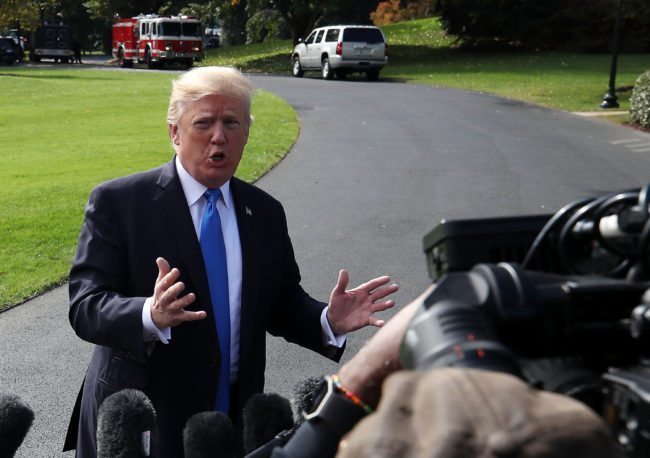
(Photo by Mark Wilson/Getty Images)
The Trump administration itself has filed an amicus brief backing the freedom to discriminate.
Trump’s Justice Department claimed that a ruling against the bakery could create an “intrusion” against the First Amendment “where a public accommodations law compels someone to create expression for a particular person or entity and to participate, literally or figuratively, in a ceremony or other expressive event.”
86 Republican members of congress have also signed an amicus brief to the US Supreme Court supporting the baker’s right to discriminate.
The gay couple in the case, David Mullins and Charlie Craig, have vowed to stand up for equality.
They said: “This has always been about more than a cake. Businesses should not be allowed to violate the law and discriminate against us because of who we are and who we love.
“While we’re disappointed that the courts continue debating the simple question of whether LGBT people deserve to be treated like everyone else, we hope that our case helps ensure that no one has to experience being turned away simply because of who they are.”
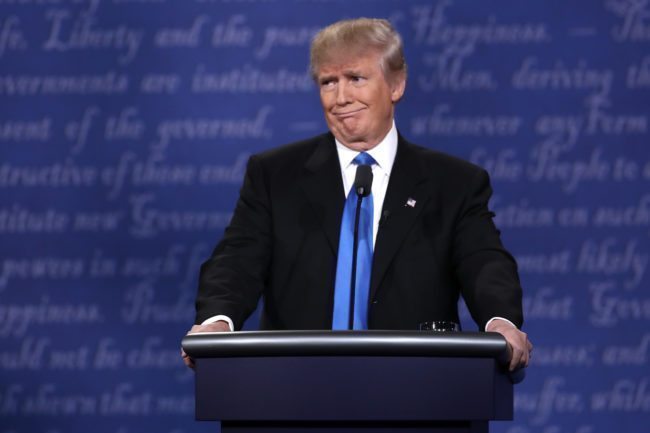
(Photo by Win McNamee/Getty Images)
The American Civil Liberties Union and the ACLU of Colorado represent Mullins and Craig in the case.
James Esseks, director of the ACLU’s LGBT Project, said: “The law is squarely on David and Charlie’s side because when businesses are open to the public, they’re supposed to be open to everyone.
“While the right to one’s religious beliefs is fundamental, a license to discriminate is not.
“Same-sex couples like David and Charlie deserve to be treated with the same dignity and respect as anyone else, and we’re ready to take that fight all the way to the Supreme Court.”
The baker is defended by hardline anti-LGBT law firm Alliance Defending Freedom, which has sought to undermine LGBT rights protections in a number of states.
Though the ADF is framing the issue around a religious objection to same-sex marriage, their other cases show a much wider support for licensing anti-LGBT discrimination.
For instance, they have sued a school district over a transgender non-discrimination policy, and defended a T-shirt printer who refused an order from a Pride celebration.
British MPs recently accused Donald Trump of “undermining” work on global LGBTI rights by pursuing a regressive agenda.
At a debate in the UK’s House of Commons yesterday, politicians from across parties voiced concern at developments in the United States on LGBT issues.
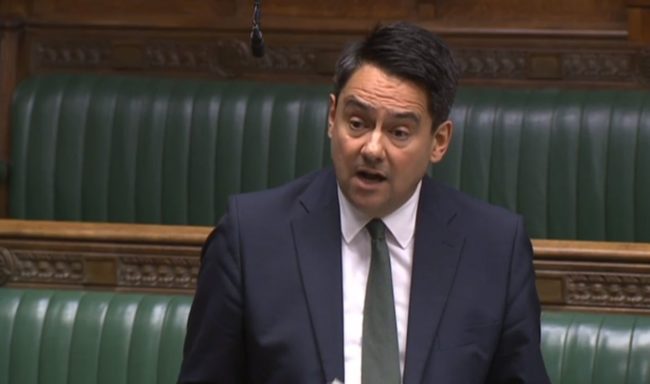
Labour MP Stephen Twigg said: “I want to say something about what is happening in the United States of America. President Trump’s decision to ban transgender people from the US military is an enormous shame, one I hope we can condemn on a cross-party basis.
“I pay tribute to the chairman of the joint chiefs of staff in America for his positive and measured response to President Trump’s actions. I urge our Government to do all they can to press President Trump to think again on his attempt to ban trans people from the US armed forces.
“That, however, is not the only incident of greater homophobia and transphobia in American politics and policy. Recently, the United States voted against a UN Human Rights Council resolution that condemned the use of the death penalty against people because they are LGBT.
“President Obama left a very positive legacy on LGBT. Tragically, President Trump is undoing it.
“That leaves a vacuum in global LGBT rights. I hope that the United Kingdom, working with like-minded countries around the world, will play a leadership role to ensure we do not slip back, but instead move forward to global LGBT equality.”

